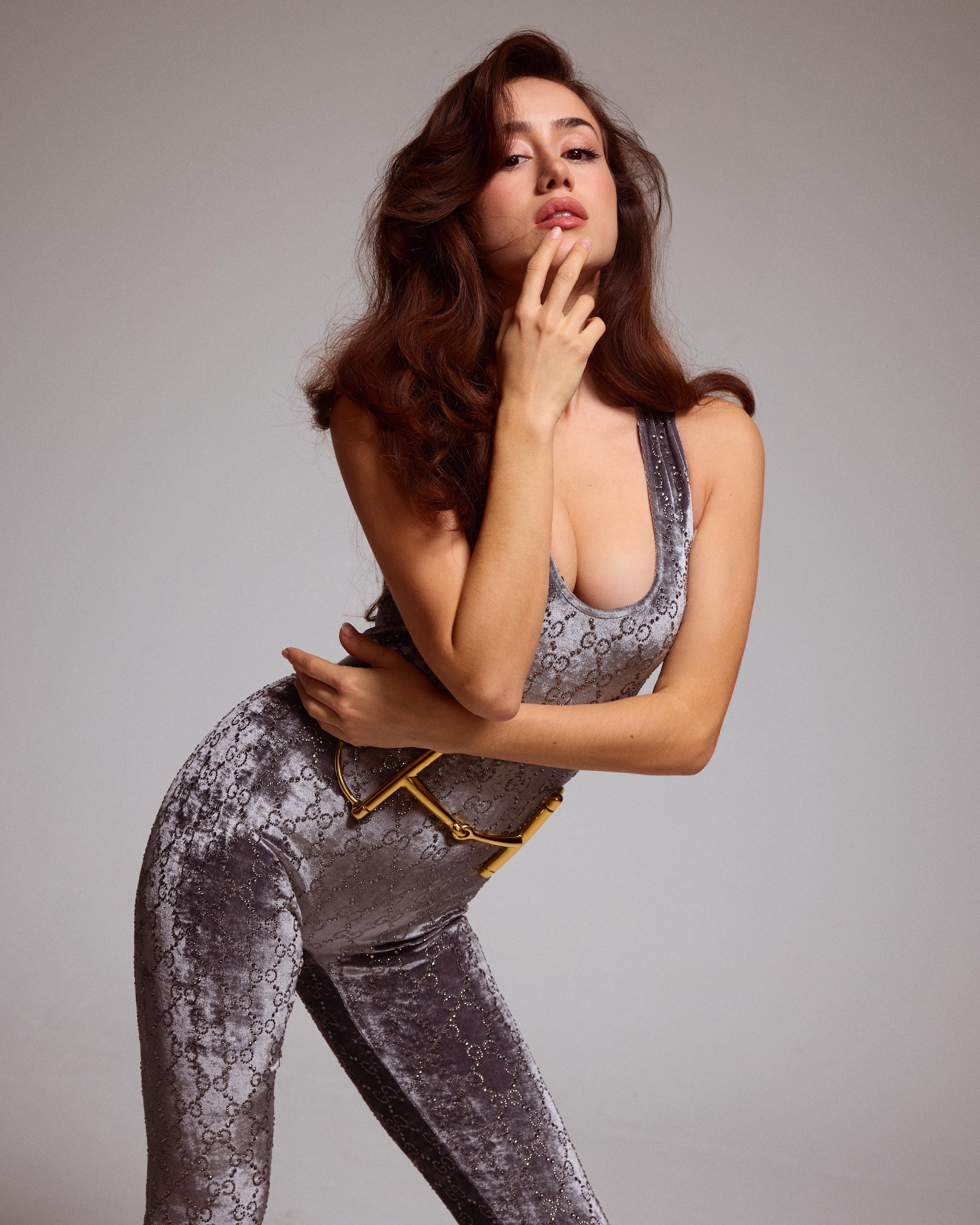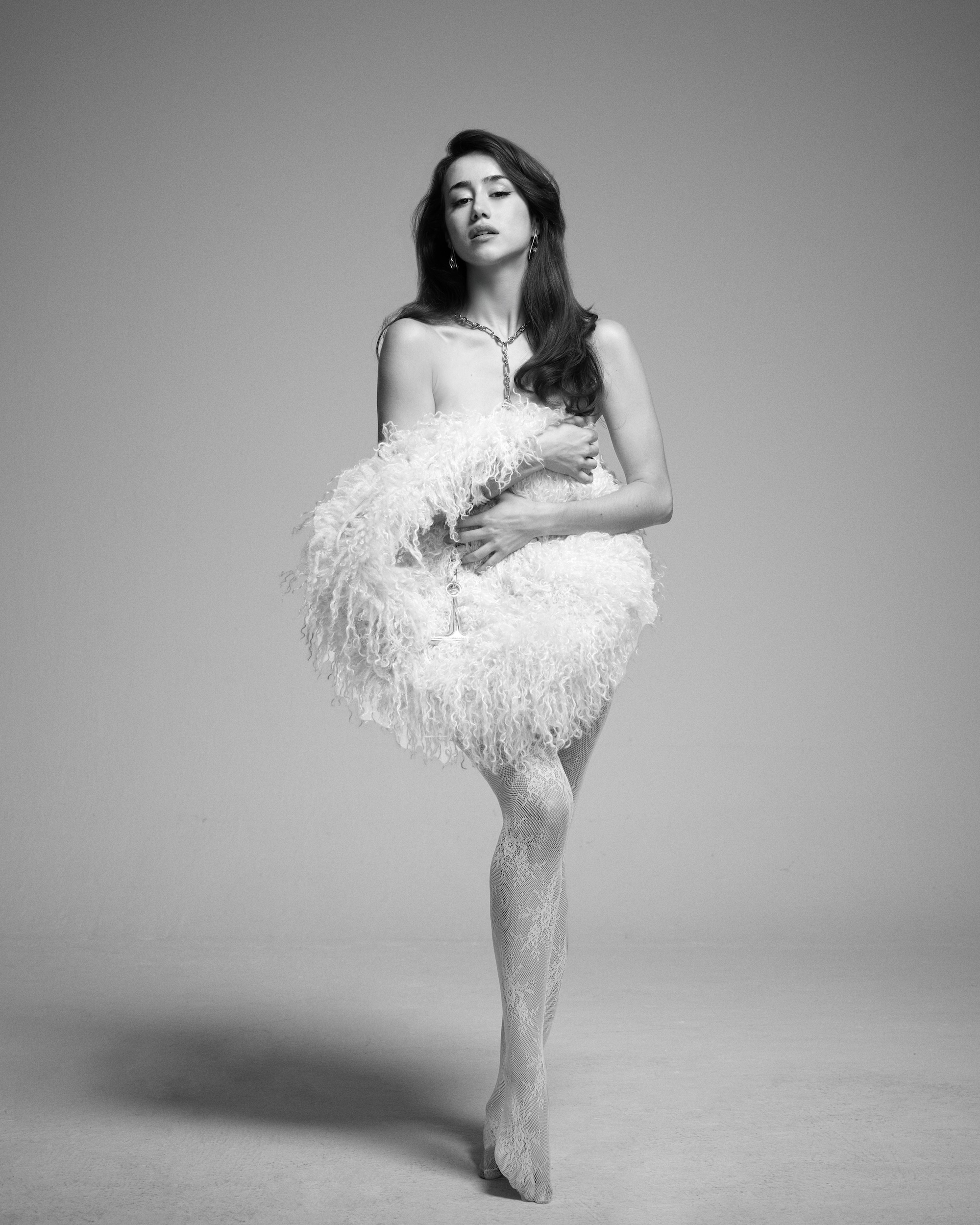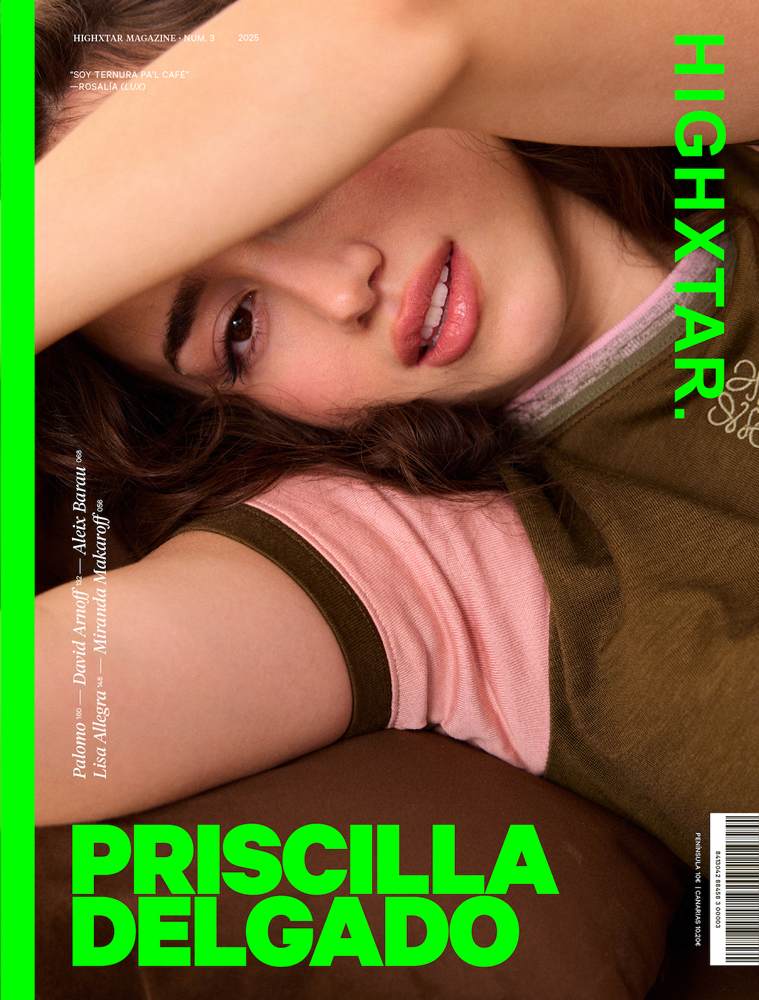It’s nine in the morning when Priscilla arrives at the studio smiling, handing out hugs. She has very fair skin, large expressive eyes, tousled hair and a petite frame with a wasp waist. She bears a slight resemblance to one of her all-time favourite actresses, Natalie Wood, and, like her idol, exudes natural ease and effortless sensuality. Born in Puerto Rico in 2002 and raised in Madrid — she is the daughter of a Spaniard and a Puerto Rican — she began acting as a child. She was only eight when she stood out with her Bambi-like gaze as the youngest character in Los protegidos. Her CV includes numerous series and a good handful of films: Amador by Fernando León de Aranoa, Las brujas de Zugarramurdi by Álex de la Iglesia, and Julieta by Pedro Almodóvar.
In 2015 she filmed her first English-language movie, El mal que hacen los hombres (Ramón Térmens), and it was there that she began working with her current agents in the United States. From that moment on, she started auditioning in English, and at 17 she moved to Los Angeles, where she soon began her training in acting at The Lee Strasberg Theatre & Film Institute.

HIGHXTAR (H) – You were a child the first time you stood in front of a camera. Do you remember that feeling?
PRISCILLA (P) – Of course. It was for a Castilla-La Mancha advert. It was the first casting I ever went to and it was a dream. I was five years old, and it was a very beautiful, almost dreamlike appearance among some windmills. For me, stepping onto a set has always been a place to let creativity run free, a place where I feel happy.
(H) – You haven’t stopped since then. Vocation or determination?
(P) – At eight years old, I was the one asking my parents for it — even earlier, really. I think that without vocation, I wouldn’t have continued. It has always been present in me. Maybe there’s no rational explanation for such an early vocation, but I was always a child with a huge desire to express myself. And my family understood that introducing me so young into an adult world was something very delicate.
(H) – And how did you balance work with school and studying?
(P) – Quite well, actually. Just the other day I was telling a friend that, while they were teaching the class on how to tell time on a clock, I was filming a movie in Logroño — so it took me a while to grasp it… But I always had a tutor on set. Thank God, my teachers were very understanding, and some were insistent that I fulfil my obligations. I have more affection for those teachers than for the ones who made things easier for me.
I changed schools several times, but Ramiro de Maeztu was the best because they didn’t make it easy. And the subjects I learnt the most from weren’t the ones where I got the 8s or 9s I enjoyed achieving, but the ones where I scraped a 5. Then, when I moved into sixth form, I went to Jesús Maestro, a Teresian school that did me a lot of good. I’d never experienced starting the day with the word of God in the classroom. It was a peaceful time in the middle of the chaos of adolescence, when faith also played a strong role.
(H) – In what ways do you notice the generational gap at work?
(P) – I’ve always been the youngest in the group, and sometimes that makes it hard to earn respect in an adult world. But then, once people get to know you, it happens naturally. Working with people my own age is also beautiful. There’s something about just having stepped into the world and this hunger to tell and create that’s impossible to resist.

(H) – That must have helped you mature faster than others your age.
(P) – Yes, especially being surrounded by information and by people who already have a professional journey and a lot of experience. Imagine being a child in full development and being able to see, hear and learn closely from minds and worlds like Pablo Berger, León de Aranoa, Almodóvar, García Sánchez and now Sam Levinson. I’ve been very fortunate to learn from and enjoy their testimonies live and in person.
(H) – One question that always hangs over public figures is whether to speak or not speak about politics.
(P) – If you’re in the spotlight, I understand that you have a responsibility. But I also think we need to let the people who really have the right information speak — those who truly know what they’re talking about. Politics, although essential and indispensable for the progress of our society and social causes, is unfortunately sometimes something that divides. But I believe there are far more reasons that unite us, and that’s when it becomes important to raise your voice.
(H) – Everyone asks you about Zendaya or Rosalía, and even though you can’t reveal anything, what impression did working with them leave on you?
(P) – When you work with someone you deeply admire, you prefer to stay quiet and listen to what they have to say. But it has been a privilege to watch her work — not only as an actress, but also as a producer on the show. She oversees the process.
Discover the rest of the interview in issue 3 of HIGHXTAR.

Sigue toda la información de HIGHXTAR desde Facebook, Twitter o Instagram
